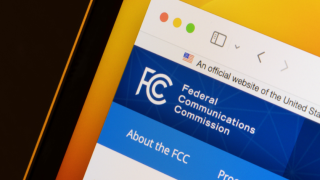The FCC initiated the review in response to significant changes in technology, economic dynamics, and national security considerations since its last assessment, a move announced the same week that subsea incidents in the Baltics raised concerns about cable vulnerabilities.
Subscribe today for free
The FCC is seeking stakeholder comments on how to improve and streamline rules related to subsea cable licensing, to “facilitate efficient deployment of submarine cables while ensuring the security, resilience, and protection of this critical infrastructure.”
As of December 2022, there were 84 FCC-licensed cable systems, with licensees reporting over 5.3 million Gbps of available capacity and an additional 6.8 million Gbps planned for 2024.
The FCC's review aims to streamline the licensing process for subsea cables, which traditionally requires applications to navigate multiple federal agencies, including the Committee for the Assessment of Foreign Participation in the United States Telecommunications Services Sector (Team Telecom), with the State Department also playing a pivotal role.
The FCC has proposed introducing a three-year periodic reporting requirement for cable landing licenses. Alternatively, it is considering shortening the current 25-year license term — or implementing both measures together.
The rulemaking review aims to ensure the agency has what it described as “targeted and granular information regarding the ownership, control, and use” of a subsea cable system.
The FCC is also looking to improve the quality of the circuit capacity data it collects from licensees and facilitate the sharing of such information with federal partners.
The proposed revisions add to the proposed rule that, for the first time, would require companies with international telecommunications authorisations to file renewal applications with the FCC.
The agency also recently proposed the creation of a “Covered List” that bars communications equipment and services deemed to pose an unacceptable risk to national security from being authorised for importation or sale in the US.
RELATED STORIES
Fragile lifelines: The rising threats and resilience of submarine cable networks
Submarine cable cuts in Baltic: Don’t rush to conclusions, says expert
Fears of Russian sabotage as submarine cables in Baltic Sea severed






